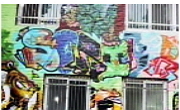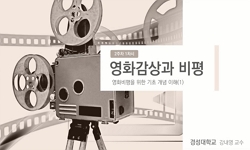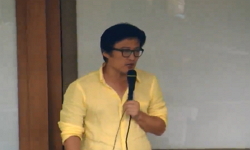This study presents an investigation into South Korean films in the 1990s in the aspects of genre change and emotional reorganization. The 1990s witnessed a change of genres and a paradigm shift in the history of Korean films according to the revoluti...
http://chineseinput.net/에서 pinyin(병음)방식으로 중국어를 변환할 수 있습니다.
변환된 중국어를 복사하여 사용하시면 됩니다.
- 中文 을 입력하시려면 zhongwen을 입력하시고 space를누르시면됩니다.
- 北京 을 입력하시려면 beijing을 입력하시고 space를 누르시면 됩니다.

파토스에의 거리와 합리적 거래의 감성화-1990년대 한국영화 장르의 변전(變轉)과 감성의 재편 = Keeping Distance from Pathos and Turning Rational Trade into Emotions—The Change of Genres and the Reorganization of Emotions in the South Korean Films in the 1990s
한글로보기https://www.riss.kr/link?id=A106353489
-
저자
박유희 (고려대학교)
- 발행기관
- 학술지명
- 권호사항
-
발행연도
2019
-
작성언어
Korean
-
주제어
Melodrama ; Romantic comedy ; Thriller ; Film Genre ; Distance ; Pathos ; Reorganization of Emotions ; 멜로드라마 ; 로맨틱코미디 ; 스릴러 ; 영화 장르 ; 거리 ; 파토스 ; 감성 재편
-
등재정보
KCI등재
-
자료형태
학술저널
-
수록면
9-40(32쪽)
-
KCI 피인용횟수
3
- DOI식별코드
- 제공처
- 소장기관
-
0
상세조회 -
0
다운로드
부가정보
다국어 초록 (Multilingual Abstract)
Unlike previous researches, this study made an approach to the history of Korean films in the 1990s with three points: first, this study focused on why the romantic comedy genre emerged in the 1990s and what stages its formation underwent since there had been no profound discussions about them; secondly, this study analyzed the biggest hits during the transitional period from 1987~1999 to figure out the mainstream genres and emotions during that period since these hits would provide texts to show the genre domain and public taste in a symbolic way; and finally, this study grew out of the separate investigation approach between melodramas and romantic comedies and looked into an emotional structure to encompass both genres to make a more broad and dynamic approach to South Korean films in the 1990s. History flows continuously without severance from previous times. When there is attention paid to inflection points and opportunities in the continuum, it can show the dynamics and structures of changes.
This research led to the following conclusions: the mainstream genre of South Korean films had been melodramas until the 1980s. The old convention had been kept to offset or suture contradictions and excessive elements deviant from the structural consistency. Here, the structural consistency refers to no compliance to rational regulations or trade. The process of genre reorganization in the 1990s happened while securing some distance from the convention of making the structural consistency a sacrifice. The direction was to reinforce control through reasonable rationalism and logic of capital. It developed into romance, which would start with comedy to keep distance from the objects through laughter, heighten the level of remarks, and expand criticality, symbolize emotions with taste items, and build through the logic of mutual consensus and practical trade. In the 1990s, the South Korean films thus developed in a direction of moving away from the narrative of urgent pathos based on unconditional familism. It was on the same track as the entry of the South Korean society into the upgraded orbits of democracy and capitalism as the twins of modern rationalism since the latter part of the 1980s.
This study presents an investigation into South Korean films in the 1990s in the aspects of genre change and emotional reorganization. The 1990s witnessed a change of genres and a paradigm shift in the history of Korean films according to the revolutionary changes of the film industry structure and media environment. Believing that these changes had something to do with emotional changes driven by global capitalization symbolized by democratization in 1987 and the foreign currency crisis in 1998, the investigator analyzed the phenomena in film texts and examined the opportunities and context behind them.
Unlike previous researches, this study made an approach to the history of Korean films in the 1990s with three points: first, this study focused on why the romantic comedy genre emerged in the 1990s and what stages its formation underwent since there had been no profound discussions about them; secondly, this study analyzed the biggest hits during the transitional period from 1987~1999 to figure out the mainstream genres and emotions during that period since these hits would provide texts to show the genre domain and public taste in a symbolic way; and finally, this study grew out of the separate investigation approach between melodramas and romantic comedies and looked into an emotional structure to encompass both genres to make a more broad and dynamic approach to South Korean films in the 1990s. History flows continuously without severance from previous times. When there is attention paid to inflection points and opportunities in the continuum, it can show the dynamics and structures of changes.
This research led to the following conclusions: the mainstream genre of South Korean films had been melodramas until the 1980s. The old convention had been kept to offset or suture contradictions and excessive elements deviant from the structural consistency. Here, the structural consistency refers to no compliance to rational regulations or trade. The process of genre reorganization in the 1990s happened while securing some distance from the convention of making the structural consistency a sacrifice. The direction was to reinforce control through reasonable rationalism and logic of capital. It developed into romance, which would start with comedy to keep distance from the objects through laughter, heighten the level of remarks, and expand criticality, symbolize emotions with taste items, and build through the logic of mutual consensus and practical trade. In the 1990s, the South Korean films thus developed in a direction of moving away from the narrative of urgent pathos based on unconditional familism. It was on the same track as the entry of the South Korean society into the upgraded orbits of democracy and capitalism as the twins of modern rationalism since the latter part of the 1980s.
참고문헌 (Reference)
1 정지우, "해피엔드"
2 "한국일보"
3 영화진흥위원회, "한국영화산업구조분석: 할리우드 영화 직배 이후를 중심으로" 영화진흥위원회 2001
4 박유희, "한국영화사에서 ‘1980년대’가 지니는 의미" 한국영화학회 (77) : 243-280, 2018
5 유지나, "한국영화사공부 1980~1997" 이채 82-141, 2005
6 조준형, "한국영화사공부 1980~1997" 이채 143-205, 2005
7 한국영상자료원, "한국영화사 공부 : 1980~1997" 이채 2005
8 김미현, "한국영화사 : 개화기에서 개화기까지" 커뮤니케이션북스 2006
9 박유희, "한국 멜로드라마의 형성 과정 연구 ―저널리즘에 나타난 ‘멜로드라마’ 장르 개념을 중심으로" 현대문학이론학회 (38) : 181-212, 2009
10 윤성민, "한국 멜로드라마 계보에서의 로맨틱코미디" 영상문화콘텐츠연구원 0 (0): 107-120, 2015
1 정지우, "해피엔드"
2 "한국일보"
3 영화진흥위원회, "한국영화산업구조분석: 할리우드 영화 직배 이후를 중심으로" 영화진흥위원회 2001
4 박유희, "한국영화사에서 ‘1980년대’가 지니는 의미" 한국영화학회 (77) : 243-280, 2018
5 유지나, "한국영화사공부 1980~1997" 이채 82-141, 2005
6 조준형, "한국영화사공부 1980~1997" 이채 143-205, 2005
7 한국영상자료원, "한국영화사 공부 : 1980~1997" 이채 2005
8 김미현, "한국영화사 : 개화기에서 개화기까지" 커뮤니케이션북스 2006
9 박유희, "한국 멜로드라마의 형성 과정 연구 ―저널리즘에 나타난 ‘멜로드라마’ 장르 개념을 중심으로" 현대문학이론학회 (38) : 181-212, 2009
10 윤성민, "한국 멜로드라마 계보에서의 로맨틱코미디" 영상문화콘텐츠연구원 0 (0): 107-120, 2015
11 "한겨레신문"
12 이정국, "편지"
13 박선영, "코미디언 전성시대 : 한국 코미디영화의 역사와 정치미학" 소명출판 2018
14 오영숙, "코미디 영화의 세 가지 존재 방식-50년대 코미디 영화를 중심으로-" 한국영화학회 (26) : 235-264, 2005
15 전우형, "접속하는 도시에 투영된 <접속>의 무의식적 욕망" 현대영화연구소 13 (13): 43-68, 2017
16 장윤현, "접속"
17 박유희, "장선우의 외설 논란 영화를 통해 본 포스트 시대 한국영화의 동향" 한국드라마학회 (48) : 225-254, 2016
18 앙리 베르그송, "웃음" 세계사 1992
19 한국영화진흥공사, "영화연감(1988~2000)"
20 "서울신문"
21 "매일경제"
22 강우석, "마누라 죽이기"
23 "동아일보"
24 박진형, "대중영화와 현대사회" 도서출판 소도 136-137, 2005
25 대중서사장르연구회, "대중서사장르의 모든 것 4 : 코미디" 이론과실천 2013
26 대중서사장르연구회, "대중서사장르의 모든 것 1 : 멜로드라마" 이론과실천 2007
27 이광훈, "닥터 봉"
28 이명세, "나의 사랑 나의 신부"
29 배창호, "기쁜 우리 젊은 날"
30 "경향신문"
31 김의석, "결혼 이야기"
32 에바 일루즈, "감정 자본주의" 돌베개 2010
33 "NAVER영화"
34 "KOFIC"
35 "KMDB"
36 유지나, "60년대 한국 코미디: 핵심코드와 사회적 의미 작용" 한국영화학회 (15) : 283-306, 1999
37 김소연, "1990년대 이후 한국영화에서 ‘코믹 모드’의 문제-로맨틱 코미디 장르의 이행기적 등장을 중심으로-" 한국영화학회 (60) : 29-55, 2014
38 윤성은, "1990년대 이후 한국 로맨틱 코미디 영화의 변형 양상과 요인에 관한 연구" 한양대학교 대학원 2010
39 김정남, "1990년대 문화키워드 20" 문화다북스 2017
동일학술지(권/호) 다른 논문
-
- 대중서사학회
- 서동수
- 2019
- KCI등재
-
로맨스, 여성, 가부장제의 함수관계에 대한 독자반응비평—제니스 A. 래드웨이의 <로맨스 읽기: 여성, 가부장제와 대중문학>을 중심으로
- 대중서사학회
- 이정옥
- 2019
- KCI등재
-
1980년대 문고본 로맨스의 독자 상정과 출판 전략 연구—‘하이틴’ 기호를 중심으로
- 대중서사학회
- 손진원
- 2019
- KCI등재
-
삼중당의 하이틴로맨스와 1980년대 소녀들의 사랑과 섹슈얼리티
- 대중서사학회
- 이주라
- 2019
- KCI등재
분석정보
인용정보 인용지수 설명보기
학술지 이력
| 연월일 | 이력구분 | 이력상세 | 등재구분 |
|---|---|---|---|
| 2027 | 평가예정 | 재인증평가 신청대상 (재인증) | |
| 2021-01-01 | 평가 | 등재학술지 유지 (재인증) |  |
| 2018-01-01 | 평가 | 등재학술지 유지 (등재유지) |  |
| 2015-10-21 | 학회명변경 | 영문명 : 미등록 -> The Association of Popular Narrative |  |
| 2015-01-01 | 평가 | 등재학술지 유지 (등재유지) |  |
| 2011-01-01 | 평가 | 등재학술지 유지 (등재유지) |  |
| 2008-01-01 | 평가 | 등재학술지 선정 (등재후보2차) |  |
| 2007-01-01 | 평가 | 등재후보 1차 PASS (등재후보1차) |  |
| 2005-01-01 | 평가 | 등재후보학술지 선정 (신규평가) |  |
학술지 인용정보
| 기준연도 | WOS-KCI 통합IF(2년) | KCIF(2년) | KCIF(3년) |
|---|---|---|---|
| 2016 | 0.88 | 0.88 | 0.94 |
| KCIF(4년) | KCIF(5년) | 중심성지수(3년) | 즉시성지수 |
| 0.87 | 0.84 | 1.628 | 0.11 |




 KCI
KCI






